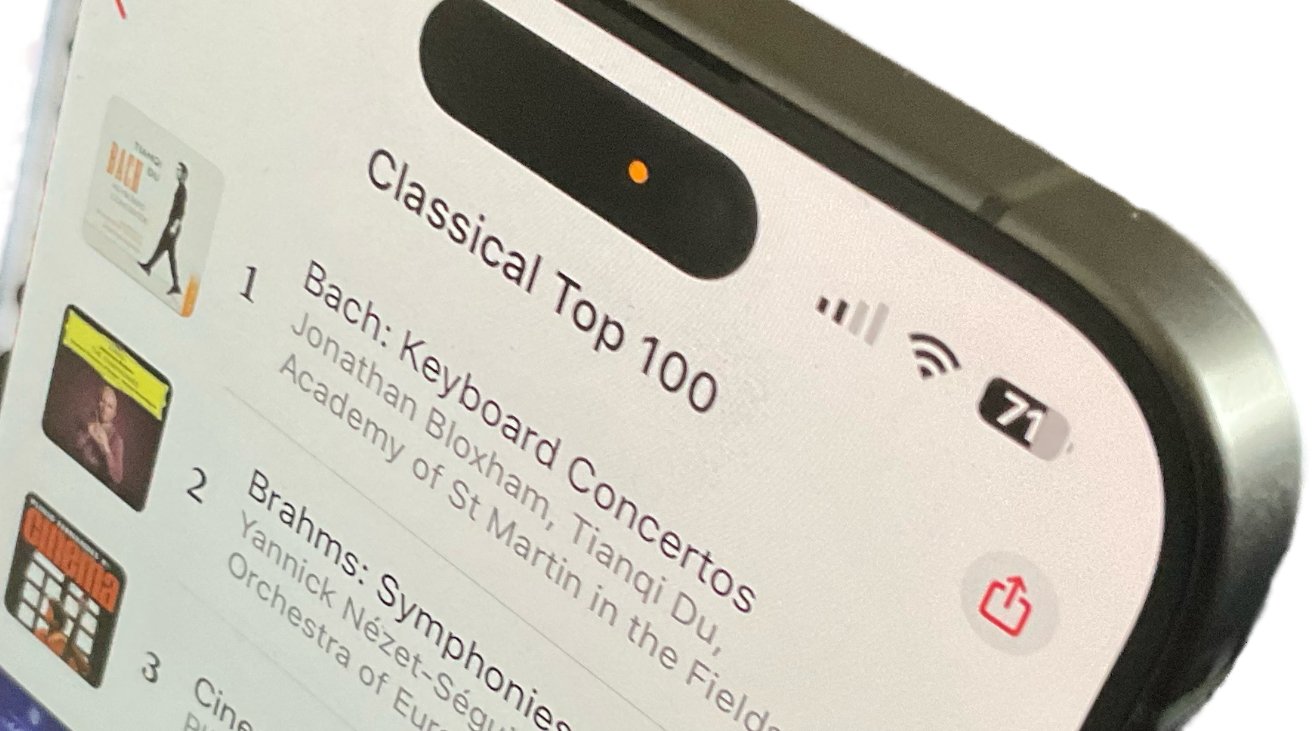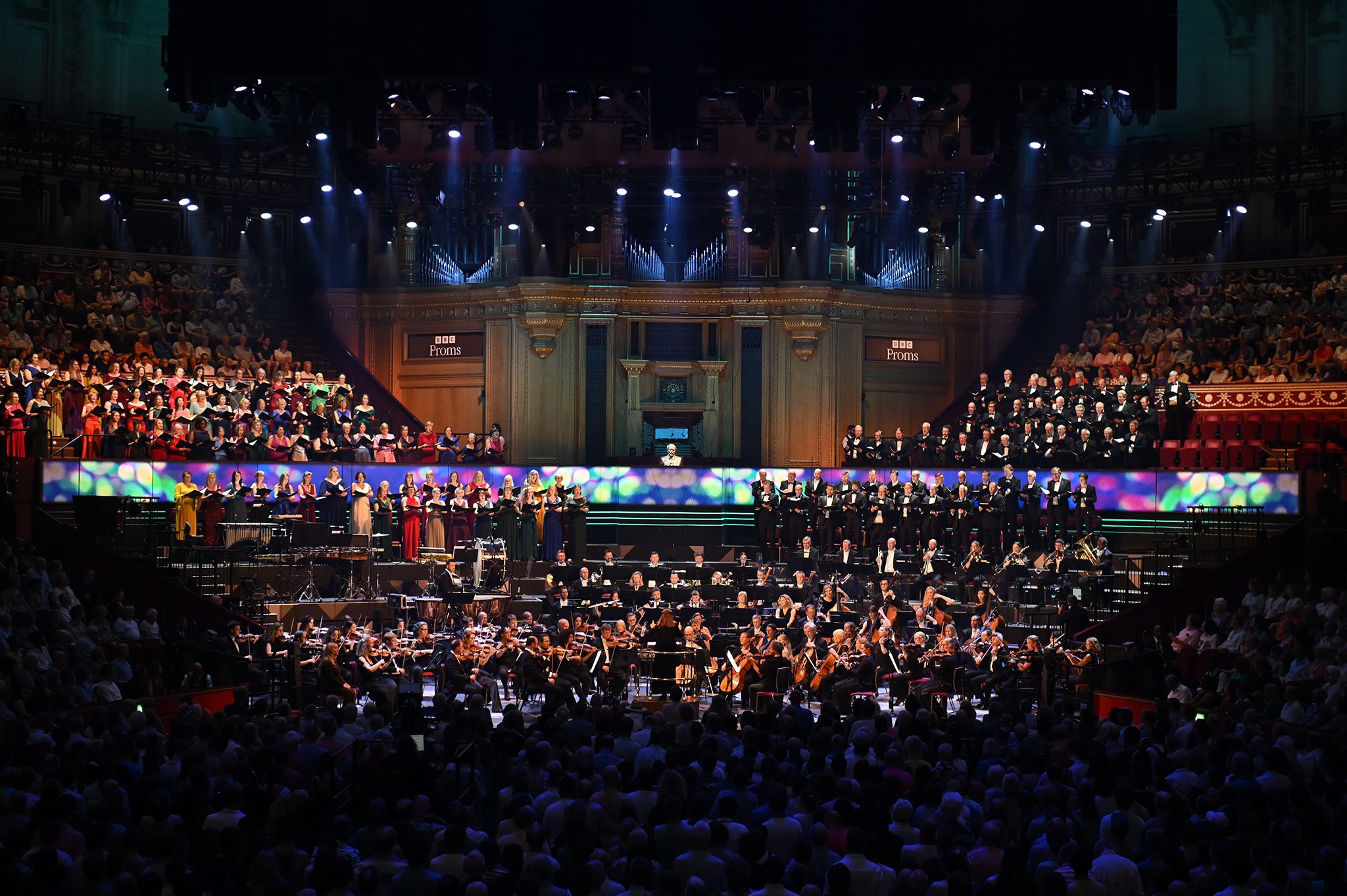Based on my usual cursory late-night pre-launch browse of a leaked brochure, this collection doesn’t bring me out in hives like in recent years. So, that’s progress.
The BBC Proms 2024 season has been announced revealing a mix of music, locations and UK and international artists and orchestras for audiences in the concert hall and on TV and radio.
The 90-strong concert season runs from Friday 19 July to Saturday 14 September 2024.
Musos will be pleased with the composer anniversary celebrations for Arnold Schoenberg, Ferruccio Busoni, Faure, Puccini, Stanford, and Smetana, a smaller sub-section of which will no doubt be delighted to see a focus on Bruckner.
They’ll (some of them probably) be less impressed with the orchestral crossovers, the pop music, the disco and, presumably, the Doctor Who Prom which makes a return too. These artistic decisions have already been positioned in the press as a whiff of dumbing down, something the ‘BBC bosses’ have insisted is not the case.
Most of the usual elements are still present – new works, UK and European premieres, spotlight for new composers, visiting orchestras from across the UK and internationally, and a (reasonably) impressive array of conductors and soloists scattered across the summer too, some of whom the BBC is inevitably keen to underline are debuting at the season, presumably to illustrate its commitment to ‘new talent’.
The Proms continues with embedding itself in locations beyond London with concert ‘residencies’ in Sage Gateshead, Bristol Beacon, Nottingham, plus one-off concerts in Aberdeen, Belfast, and Newport.
Scheduling Strategies In The Proms Season
A closer look at how the season is scheduled gives a hint at some of the challenges the Corporation are seeking to rise to. Exploiting the first week and the larger amount of attention the opening season receives amongst the widest audience sees concerts that feature core repertoire, orchestral crossover, and ‘light’ classical. Concerts present the opportunity for big visual splashes that light up the TV screen, raising awareness of the season and the brand in the minds of the widest possible audience. Or at least, that surely is the intention – by prioritising range, you’ll reach the most the quickest.
Moving into the second week and beyond, weekdays are reserved for the marginally more specialist repertoire – the kind of material a classical fan will be more interested in.
For most of the season, weekends start from Friday evening and are geared towards the newcomer, the family, and the curious. Programmatically they remain a mix of light, pop-crossover and recognisable crowd-pleasing classical. This is when it’s the biggest potential audience will be at their most available and therefore most likely to spend. As the season moves towards its inexorable end more specialist content pops up at weekends. Yet this is the moment in time when fewer concerts are captured for TV broadcast.
As in previous years, international orchestras appear mostly in the final weeks of the season. This is where most of the big names appear, and where classical music fans are going to be most drawn to.
In the final week, we’re back to the crowd-pleasing instantly recognisable works – Prokofiev Romeo and Juliet, Beethoven 3, Tchaikovsky Violin Concerto and 6th Symphony, Shostakovich 5. ‘Connoisseurs’ are (presumably) kept happy with Britten’s A Midsummer Night’s Dream, and piano fans with Sir Andras Schiff playing Bach.
Ticket Price Changes
The lowest price ticket is up by £1 to £10. First Night tickets up £1 from £14 to £15 for lowest price, and £62 to £64 for top price tickets. Last Night tickets are up from £32 to £50 for the lowest price and from £115 to £150 for the top price. Standing Arena and Gallery day (‘Promming’) tickets remain the same at £8 throughout the season.
TV signposting a range of classical products
What performances from the Proms appear on TV (ie to the largest potential audience) illustrates how the BBC needs to position the ‘world’s greatest classical music festival’ to its licence fee payers. It’s a wider cultural net than purely classical, building on core repertoire, instantly recognisable composers with orchestral crossover of light, rock and pop. Diversity and representation are rightly prioritised, meaning that TV helps shift perceptions about access and representation. But importantly for the BBC, these broadcasts (and any on-air advertising) have the potential to signpost the newcomer or the curious to a wider variety of services beyond simply a Prom concert. In this way, the Proms is a vehicle for showcasing all of the BBC’s other classical music services. Doing the signposting when the widest possible audience has its eyes on the screen is vital in further embedding a new classical music strategy (or at least the more preferable one compared to 2023’s debacle, most evident in the most recent Radio 3 schedule changes).
There are weeks mid-late season when the more specialist concerts don’t get captured or relayed. (TV is expensive. Live broadcast is only valuable if there’s a greater guarantee of an audience.) That means, by and large, that if you’re a concertgoer who likes the more off-the-beaten-track programming you’re either heading to the hall or you’ll be listening on Radio 3. In that way, it feels a little like the serious listener outside of London and uninspired by Gateshead, Nottingham, Bristol or Belfast programming may feel a bit sidelined.
Commerical Realities and Audience Engagement
None of this light touch analysis feels like a marked shift from previous years (even before the pandemic) though there will be those who focus solely on the lighter and crossover concerts as evidence of a degradation of season values, and a rejection or downplaying of classical music. The reality is that the wider BBC has to think more commercially. The Proms isn’t immune (and arguably shouldn’t be) from the same financial cuts the rest of the organisation has to face. It tried cutting an ensemble and 20% of its players, a decision which was rightly met with fierce opposition. So, little wonder that the Corporation which subsidises so much of this extended season to make ticket prices affordable should pursue a more unified strategy that maximises awareness of the brand to the widest possible audience. That necessitates blurring the boundaries between genres. The BBC wants full houses not simply for revenue but also for TV viewing, which helps protect what can be protected in meetings where evermore dwindling budgets are pored over. So, it’s understandable, perhaps even sensible to do so. But, maybe it’s time to quietly retire the ‘world’s greatest classical music festival’ tagline.
All this said, there is more in this season that pulls me to the Royal Albert Hall than in previous years, so on that basis, they’ve hit the mark. The season will always be judged as a whole rather than its individual parts – problematic for the BBC which needs to position itself as reflecting appetite, building audiences and responding to criticism from those who don’t (understandably) get its sometimes oblique decision-making. No matter, based on my usual cursory late-night pre-launch browse of a leaked brochure, this collection doesn’t bring me out in hives like in recent years. So, that’s progress.
Highlights, Recommendations, and Things To Avoid
Must-See: Countertenor Jakub Józef Orliński and Il Pomo d’Oro
Another Must-See: BBC Philharmonic play Turangalila
Another Must-See: Bach Collegium Japan with Bach’s St John Passion
Absolute Definite: Yo Yo Ma, Emmanuel Ax, and Leonidas Kavakos
Biassed Recommendation: Ulster Orchestra with Daniele Rustioni
20th Century Treat: John Adams’ Harmonielehre
New Music: Dani Howard, Lara Poe, Edmund Finnis, Anna Clyne
Key Event: Mark Elder conducting Halle in Mahler’s 5th
Unexpected Treat I’m Fully Behind: Nick Drake Celebration with Jules Buckley
Discovery: Benjamin Grosvenor playing Busoni
Guilty Pleasure: Ultra Lounge Henry Mancini Celebration
Poignant Events: Britten’s War Requiem & Bach St John Passion
International Must-Sees: Czech Philharmonic, Bavarian Radio Symphony, Orchestre de Paris, and Rotterdam Philharmonic
UK Must See: London Symphony Orchestra with Antonio Pappano
Three I’m Avoiding: Sam Smith, Beethoven 9, and the Doctor Who Prom



